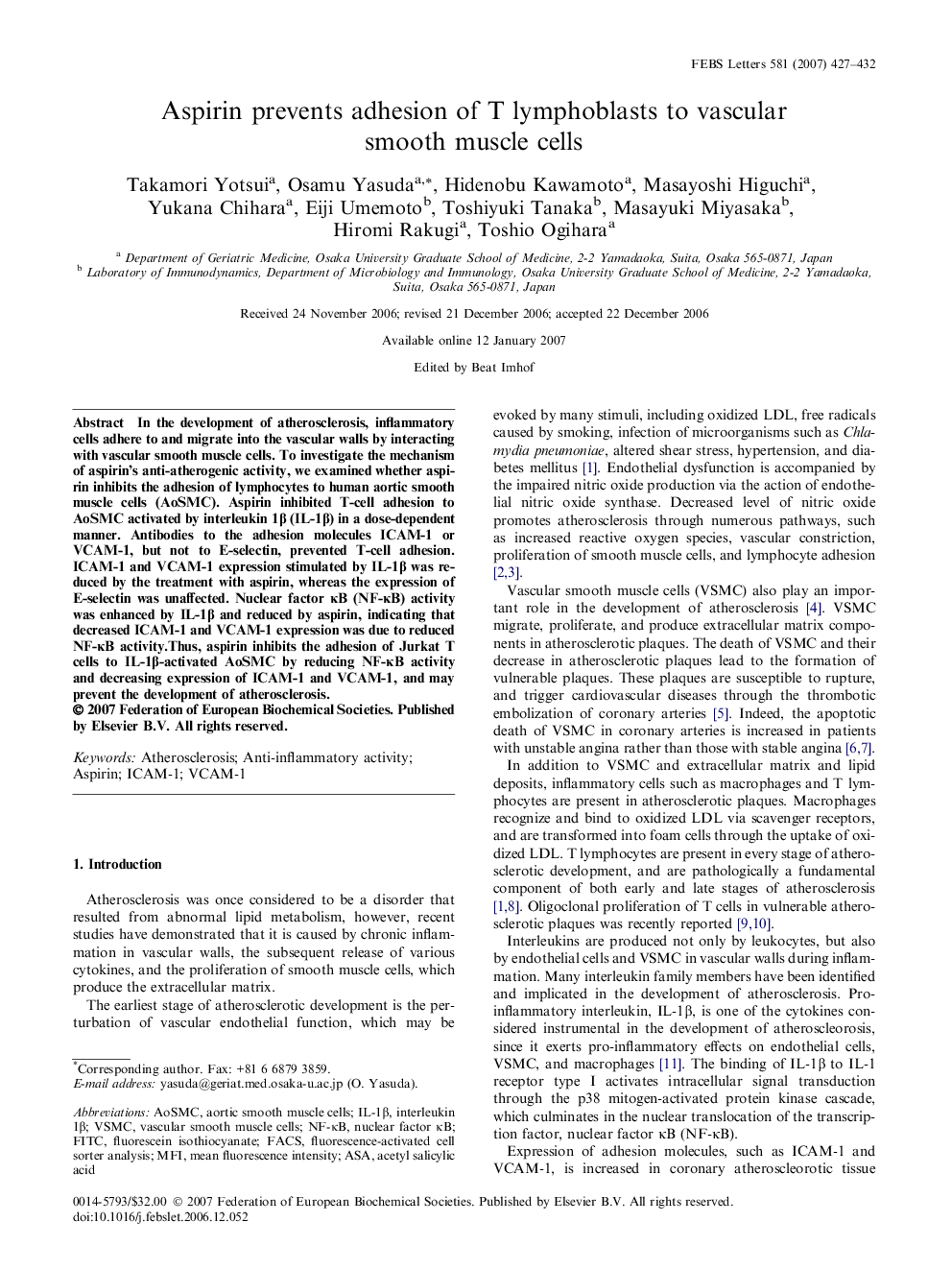| Article ID | Journal | Published Year | Pages | File Type |
|---|---|---|---|---|
| 2051501 | FEBS Letters | 2007 | 6 Pages |
In the development of atherosclerosis, inflammatory cells adhere to and migrate into the vascular walls by interacting with vascular smooth muscle cells. To investigate the mechanism of aspirin’s anti-atherogenic activity, we examined whether aspirin inhibits the adhesion of lymphocytes to human aortic smooth muscle cells (AoSMC). Aspirin inhibited T-cell adhesion to AoSMC activated by interleukin 1β (IL-1β) in a dose-dependent manner. Antibodies to the adhesion molecules ICAM-1 or VCAM-1, but not to E-selectin, prevented T-cell adhesion. ICAM-1 and VCAM-1 expression stimulated by IL-1β was reduced by the treatment with aspirin, whereas the expression of E-selectin was unaffected. Nuclear factor κB (NF-κB) activity was enhanced by IL-1β and reduced by aspirin, indicating that decreased ICAM-1 and VCAM-1 expression was due to reduced NF-κB activity.Thus, aspirin inhibits the adhesion of Jurkat T cells to IL-1β-activated AoSMC by reducing NF-κB activity and decreasing expression of ICAM-1 and VCAM-1, and may prevent the development of atherosclerosis.
